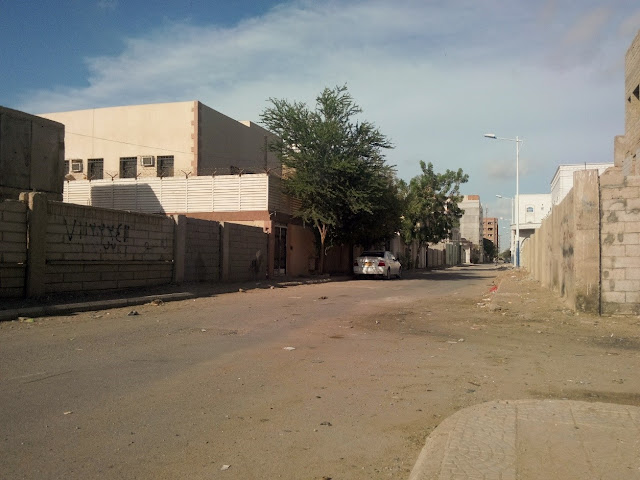 |
Carsten Niebuhr a German mathematician, cartographer, and explorer in
the service of Denmark, is renowned for his participation in the 1761 Danish
Arabia Expedition.
|
Little-known fact: Did you know that old newspaper and magazine pages torn into strips make awesome table napkins? Though they don’t suck up as much liquid as actual serviettes, you can still clean your hands and face with them. And you can almost not taste the ink. Bonus side effect: they’re also cheaper and ecological—because of recycling. Yemenis’ reputation for their unusual reuse of tabloids has gotten wide exposure. Today, almost all newspaper and magazine wholesalers from the Middle East, North Africa and Southeast Asia can proudly consider themselves pioneering spirits, for dumping their unwanted gossip periodicals here for reuse.
When I was in one of these environmentally friendly restaurants the other day, I couldn’t help myself and tried to decipher what my page strip was trying to tell me. It turned out that the page was from a (discontinued) state-owned, Yemeni tourist magazine written in English, printed in Yemen, and sold abroad.
 |
Mosquitoes are considered the deadliest “animal” in the world.
|
The page I had happened to feature an article about an exhibition held in honor of the first European scientific expedition to Arabia. The only thing I was able to read then was the interesting pull quote located at the center of what was left of the page. It was stated by the trip’s only survivor, German explorer Carsten Niebuhr:
“If you are in a
hostelry and don’t mind finding anything else on its menu than bread, your stay
in Yemen will be as amusing as mine has been.”
He said that in 1774. Unbelievable that people were making fun of us even in those olden days. What’s also weird is that this double-talk is held in high regard by many. I am not sure if he was telling us about the simplicity and modesty of the Yemeni people, or how we don’t mind not engaging in the technical, scientific, spiritual, and economic developments that are happening all around us.
Whatever the case, we’ve come a long way since then. We sure as hell have a lot more tragedies to offer. So as a reissuance of his remark, I’ve decided to write yet another guide to some shitty things in Yemen, and end it all up with the same shallow and foolish contradiction. Who knows, I might even turn the last part into a catchphrase. Here comes the rest of this article in no particular order and in the form of a list that people can reference (seriously and systematically) for another 239 or so years to come.
 |
It's a Prison... It's
a Mental Asylum… No, it's just a house in front of the only three trees in the
world
|
If:
- you’re in the bathroom and don’t mind a sudden power outage (for like no reason), making you start tapping around in the dark looking for your soap or toothbrush or whatever, until you slip, bump you head, and then have to wear a stupid bandage all week;
- you don’t have any problems with boatloads of mosquitos that, because of citywide sewage system overflows, keep multiplying to the extent that they’re capable of “operating” day and night, making it impossible for months to hold a pain-free and itch-free conversation outside, or inside—if you happened to live in a window-less house, because you just can’t afford any, or because the airstrike that hit the neighboring house, or the tank that was positioned “strategically perfect” in front of your house caused them to explode like crazy—until your friends and family have to carry you to the hospital diagnosed with malaria;
- you decide to ask for the hand of your girl, and you’re not annoyed by insanely high mahrs (payments to and from the bride in Islamic law and tradition), set by families that leave you no choice but to forget about each other, but you can’t because you’re in love, so you guys keep secretly meeting in strange neighborhoods, dirty dead ends and “friends-of-friend’s” places, just to get caught anyway, beaten up, publicly humiliated and convicted (even killed) like an “actual” criminal;
- you meet women who don’t get to leave their houses, or at least never by themselves or only for real and genuine reasons, and you can ignore the fact that they, if given the chance, confront you with the honest but naive question such as whether trees, like the one outside their houses, also exists in other countries;
- you want to receive remittances, and, happened to be called Mohammed (or its derivatives) or Saleh, or both together, choose Western Union or anything similar as your solution, and, can ignore the fact that they tell you (after having accepted the money from the sender) that they’re not allowed to do business with anyone in Yemen carrying your name, whereupon you go to an actual bank, notify whoever’s sending, and then (after the sender’s bank approves the transaction) being told to wait at least 30 days on a possible approval by a US bank through which all money transactions from and to Yemen run (Why? Because eff you, that's why!), at which point you switch to PayPal just to find out (after going through the hassle of creating an account) that Yemeni PayPal accounts can only send but never receive money; and
- you decide to go to the movies or a museum or a library or the park or a swimming pool or a concert or a party […](none of those things exists in Yemen), but can’t, because your neighborhood has collectively decided to declare your front yard as the new garbage dumpster, and you don’t mind to have to spend the next few days further distributing that garbage, which contains an unusually high amount of crumpled paper strips (I’m talking to you, Restaurant XYZ), on other guys’ front yards, and convince all others to do the same;
…then your stay in Yemen will be as amusing as mine has been.
Postscript:
I didn’t keep the page strip. The information concerning Carsten Niebuhr is true, but not necessarily accurate. He was exploring the Middle East on behalf of a Danish king. Most of the sources are incredibly long (and boring) and/or in Danish. I will adjust those points sometime in the future if enough people request me to do so.The few randomly chosen issues troubling the common Yemeni are not the point of this article. It’s about the isolation from the outside world that Yemenis are subjected to. This has been achieved not only by trade and travel restrictions for economic reasons and dubious terrorism allegations, but also by self-inflicted limitations due to the backward nature of the Yemeni culture.
This article is opinionated only to the extent that the events mentioned in the list have happened or have been witnessed by me.










